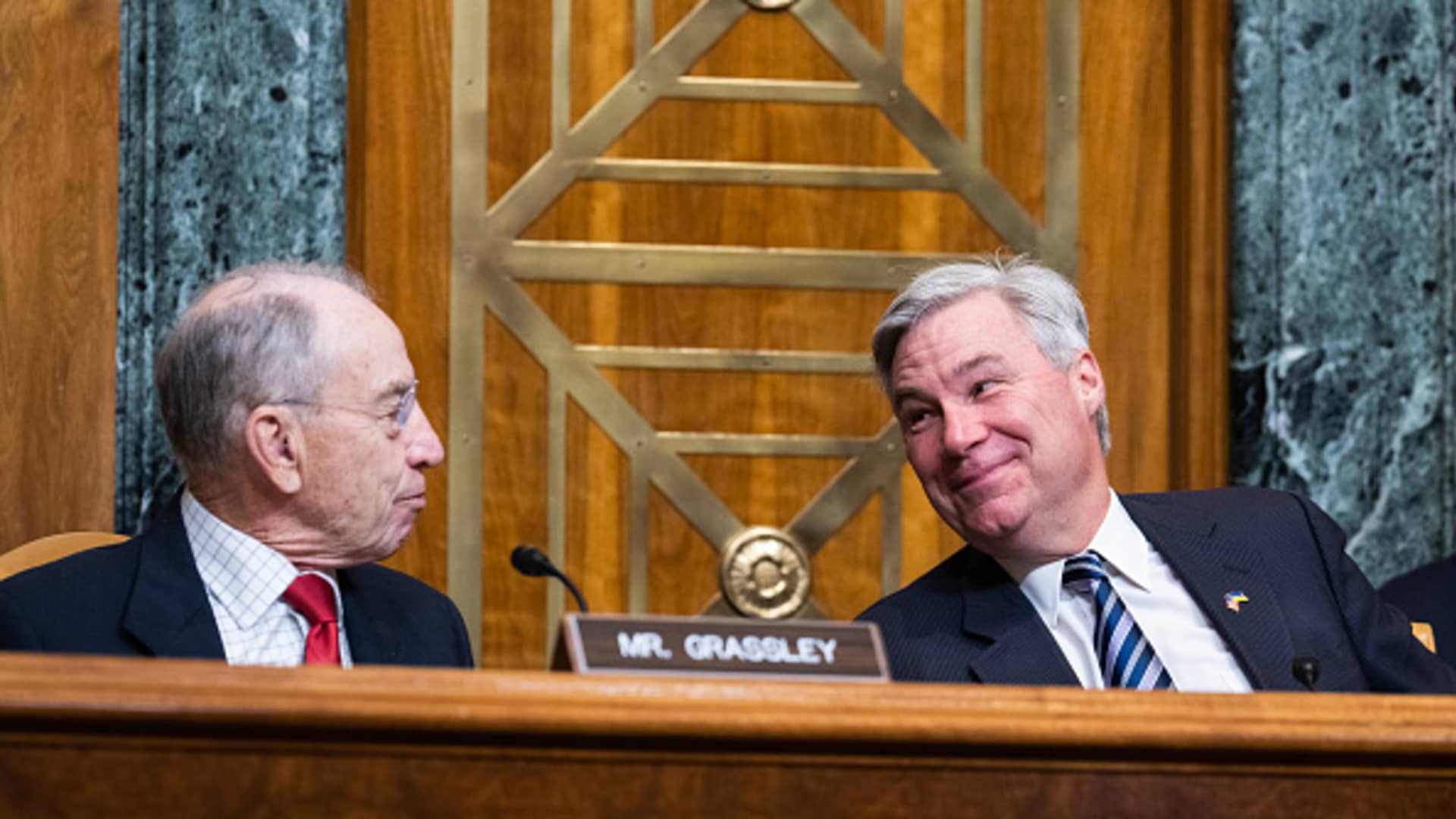When it comes to Social Security benefits, a key deadline is looming: Benefits may be reduced in the next decade if no action is taken sooner.
This week, the Senate Budget Committee met on Capitol Hill to consider the dilemma facing the program with a focus on a key question: Should payroll taxes be adjusted to make it so the wealthy pay more into the program?
The latest projections from the Social Security trustees show the program’s combined funds may run out in 2034, at which point 80% of benefits will be payable. The fund used to pay retirement benefits may run out even sooner — in 10 years in 2033 — at which point 77% of those benefits would be payable.
Social Security is a “pay as you go” program, Social Security Administration Chief Actuary Stephen Goss said at Wednesday’s Senate hearing.
More from Personal Finance:
Social Security beneficiaries may see a lower cost-of-living adjustment in 2024
Here’s the inflation breakdown for June, in one chart
Social Security phone disruptions have led to longer wait times
In 2023, up to $160,200 in earnings are subject to Social Security payroll taxes.
In 1983, when major legislation was enacted to shore up Social Security’s trust funds, 90% of covered earnings fell below the taxable maximum, according to Goss.
As of 2000, that dropped to 82.5%.
Since then, it has remained at about that same level. “We expect it to remain there in the future,” Goss said.
Senate Budget Committee Chairman Sen. Sheldon Whitehouse, D-R.I., touted his bill, the Medicare and Social Security Fair Share Act, that would require wages above $400,000 to be taxed for Social Security.
“Right now, the cap on Social Security contributions means a tech exec making $1 million effectively stops paying into the program at the end of February, while a schoolteacher making far less contributes their share through every single paycheck all year,” Whitehouse said.
The bill also aims to correct other unfair features of the system, Whitehouse said, particularly the ability to live off wealth income while making no Social Security contributions. Under the bill, those with more than $400,000 in investment income would contribute to Social Security in the same way as those who earn wages.
The bill does not propose any benefit cuts.
Other Democrats also support the idea of making higher earners pay a larger share into the program.
Rep. Brendan Doyle, D-Pa., has introduced companion legislation to Whitehouse’s proposal in the House.
Rep. John Larson, D-Conn., and Sen. Richard Blumenthal, D-Conn., on Wednesday reintroduced the Social Security 2100 Act. The bill, with more than 200 Democratic House co-sponsors, also calls for applying Social Security payroll taxes to earnings of more than $400,000. It would also apply an additional net investment income tax on people making more than $400,000.
Sens. Bernie Sanders, I-Vt., and Elizabeth Warren, D-Mass., have introduced a separate bill that would instead apply Social Security payroll taxes to incomes over $250,000, while also having the wealthy pay taxes on their investment and business income.
A tech exec making $1 million effectively stops paying into the program at the end of February, while a schoolteacher making far less contributes their share through every single paycheck all year.Sen. Sheldon WhitehouseDemocratic Senator from Rhode Island
Polls have shown raising the Social Security payroll tax cap — sometimes attached to a slogan, “Scrap the Cap” — is also popular with the public.
Yet, at Wednesday’s Senate hearing, some leaders and experts questioned whether that is the right approach.
“The truth is that taxes on the rich alone won’t save Social Security for our children and grandchildren,” said Sen. Chuck Grassley, R-Iowa, ranking member of the Senate Budget Committee.
Democrats’ proposals would push the marginal tax rate to over 50% and many would break President Joe Biden’s promise not to raise taxes on anyone making less than $400,000, Grassley argued.
“These are tax-heavy messaging bills and not real solutions,” Grassley said.
Experts who testified at the Senate hearing were also divided on whether higher taxes are the right strategy to pursue to fix the program.
“Any resolution of this funding gap must be perceived to be fair, yet fairness is in the eye of the beholder,” said Andrew Biggs, senior fellow at the American Enterprise Institute.
